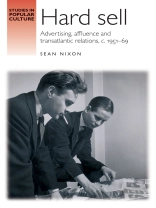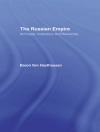‘This is an impressive piece of sustained research that brings much to the field. It offers real depth in rethinking the post-war boom and there can be little doubt that this will have a real impact across modern British history, consumer history and cultural studies.’
Jeremy Black, Professor of History, University of Exeter
Focusing on advertising’s relationship to the mass market housewife, Hard sell shows how advertising promoted new standards of material comfort in the selling of a range of everyday consumer goods and, in the process, generalised a cross-class image of the ‘modern housewife’ across the new medium of television. Nixon shows how the practices through which advertising understood and represented the ‘modern housewife’ and domestic consumption were influenced by American advertising and commercial culture. In doing so, he challenges the way critics and historians have often understood Anglo-American relations, and shows how American influences across a range of areas of advertising practice were not only a source of inspiration, but were also adapted and reworked to speak more effectively to the British consumer.
Hard sell offers a major new analysis of the techniques of advertising in the decades of post-war affluence and advertising’s relationship to the social changes associated with growing prosperity.
Tabela de Conteúdo
General Editor’s foreword
Introduction
Part I: The world of British advertising
1. Advertising in the age of affluence
Part II: Television, the housewife and Anglo-American relations
2. Apostle of Americanisation? J. Walter Thompson Company Ltd and Anglo-American relations
3. Understanding ordinary women: Market research and the mass market housewife
4. A challenge both alarming and alluring: The birth of TV advertising
5. All mod cons: Television advertising, domesticity and social change
Part III: The reception of television advertising
6. Welcome Intrusion? TV advertising and the viewing public
7. Trading on human weakness: Advertising, morality and consumer desire
Conclusion
Bibliography
Index
Sobre o autor
Sean Nixon is Professor in the Department of Sociology at University of Essex












